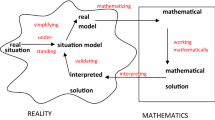Abstract
For various reasons, it is becoming felt that the knowledge function of the university is being undermined. Some, indeed, have come to suggest that we are witnessing 'the end of knowledge' in higher education. The 'end of knowledge' thesis takes three forms. Substantively, it is felt that the knowledge sustained by the university has no particular status: it simply takes its place and its chances amid the proliferating knowledges that society has now to offer. Ideologically, it is felt that the knowledge for which the university stands lacks legitimacy: it can simply be understood as a set of language games of a rather privileged set of occupational groups ('academics') that reflects their interests and marginal standing to the rest of society. Procedurally, it is implied that the university can now only secure its future by becoming entrepreneurial and by marketing its knowledge wares in forms of academic capitalism; in the process, its knowledge becomes performative in character and loses its power to enlighten. Much of this analysis is correct – even as the theses cut across each other – butthe conclusion is wrong. The modern world is supercomplex in character: it can be understood as a milieu for the proliferation of frameworks by which we might understand the world, frameworks that are often competing with each other. In such an age of supercomplexity, the university has new knowledge functions: to add to supercomplexity by offering completely new frames of understanding (so compounding supercomplexity); to help us comprehend and make sense of the resulting knowledge mayhem; and to enable us to live purposefully amid supercomplexity. Knowledge, as a pure, objective reading of the world does have to be adandoned. But the university is not, thereby, delegitimised. In an age of supercomplexity, a new epistemology for the university awaits, one that is open, bold, engaging, accessible, and conscious of its own insecurity. It is an epistemology for living amid uncertainty.
Similar content being viewed by others
References
Ayer, A.J. (1969). The Problem of Knowledge. London: Penguin.
Barnett, R. (1994). The Limits of Competence. Buckingham: Open University Press.
Barnett, R. (1997). Higher Education: A Critical Business. Buckingham: Open University Press.
Barnett, R. (2000a). Realizing the University in an Age of Supercomplexity. Buckingham: Open University Press.
Barnett, R. (2000b). ‘Working knowledge’, in Garrick, J. and Rhodes, C. (eds), Understanding Learning at Work. London: Routledge (in press).
Barnett, R. and Griffin, A. (eds) (1997). The End of Knowledge in Higher Education. London: Cassell.
Barrett, W. (1978). The Illusion of Technique. London: William Kimber.
Bernstein, B. (1996). Pedagogy, Symbolic Control and Identity. London: Taylor and Francis.
Clark, B. (1998). Creating Entrepreneurial Universities. Oxford: Pergamon.
CVCP and HEFCE (2000). The Business of Borderless Education: UK Perspectives. London: CVCP.
Delanty, G. (1998). ‘The idea of the university in the global era: From knowledge as an end to the end of knowledge?’, Social Epistemology 12(1), 3–26.
Eraut, M. (1994). Developing Professional Knowledge and Competence. London: Falmer.
Foucault, M. (1979). Discipline and Punish. Harmondsworth: Penguin.
Gibbons, M. et al. (1994). The New Production of Knowledge. London: Sage.
Giddens, A. (1991). Modernity and Self-Identity. Cambridge: Polity.
Gokulsing, K. and DaCosta, C. (1997). University Knowledges as the Goal of University Education. Lampeter: Edwin Mullen.
Hirst, P. (1974). Knowledge and the Curriculum. London: Routledge.
Horton, R. (1971). ‘African traditional thought and Western science’, in Young, M.F.D. (ed.), Knowledge and Control. London: Collier-Macmillan.
Kenney-Wallace, G. (2000). ‘Plato.com: The role and impact of corporate universities in the third millenium’, in Scott, P. (ed.), Higher Education Re-Formed. London: Falmer.
Kuhn, T.S. (1970). The Structure of Scientific Revolutions. Chicago: Chicago University Press.
Lyotard, J-F. (1984). The Postmodern Condition: A Report on Knowledge. Manchester.
Marcuse, H. (1965). ‘Repressive tolerance’, in Connerton, P. (ed.), (1978) Critical Sociology. Harmondsworth: Penguin.
NCIHE (1997). Higher Education in a Learning Society. Report of National Committed of Inquiry into Higher Education. London: HMSO.
Nonaka, I., Umenoto, K. and Sasaki, K. (1998). ‘Three tales of knowledge-creating companies’, in von Krogh, G. et al. (eds.), Knowing in Firms. London: Sage.
Polanyi, M. (1966). The Tacit Dimension. New York: Doubleday.
Polanyi, M. (ed.) (1978). Personal Knowledge. London: Routledge and Kegan Paul.
Readings, B. (1996). The University in Ruins. Cambridge, MA: Harvard University Press.
Rorty, R. (1999). Philosophy and Social Hope. Harmondsworth: Penguin.
Ryle, G. (1949). The Concept of Mind. Harmondsworth: Penguin.
Schon, D. (1983). The Reflective Practitioner. New York: Basic Books.
Slaughter, S. and Leslie, L.L. (1997). Academic Capitalism. Baltimore: Johns Hopkins.
Stehr, N. (1994). Knowledge Societies. London: Sage.
van Dijk, T.A. (1998). Ideology: a Multidisciplinary Approach. London: Sage.
von Krogh, G. et al. (1996). ‘An essay in corporate epistemology’, in von Krogh, G. and Ross, J. (eds), Managing Knowledge. London: Sage.
Author information
Authors and Affiliations
Rights and permissions
About this article
Cite this article
Barnett, R. University knowledge in an age of supercomplexity. Higher Education 40, 409–422 (2000). https://doi.org/10.1023/A:1004159513741
Issue Date:
DOI: https://doi.org/10.1023/A:1004159513741




